[amazon_image id=”0385534639″ link=”true” target=”_blank” size=”medium” class=”alignleft”]The Night Circus[/amazon_image]Erin Morgenstern’s novel [amazon_link id=”0385534639″ target=”_blank” ]The Night Circus[/amazon_link] has generated a great deal of buzz, and it isn’t hard to see why. It’s not precisely like anything I’ve read before. Celia Bowen and Marco Alisdair are rival magicians, entered into a competition by their teachers, Celia’s father Hector (also known as Prospero) and the mysterious Mr. Alexander H.—. No one, including the reader, really knows what the competition is about or what the stakes are until the end of the novel, but the venue for the competition is a magical black-and-white circus, filled with memorable characters and enchantments. The storyline is not chronological, but is instead told in a series of vignettes, out of order and from different points of view.
The imagery in the novel is vivid. Everything from the scent of caramel and taste of apple cider and chocolate popcorn to the vivid black-and-white striped tents and the colorful swatches of red in the Murray twins’ hair and the rêveurs‘ hallmark clothing is vividly described. The book is absolutely gorgeous with description, and it is in this area that Morgenstern excels. The sights, sounds, and smells of the circus pop right off the page. The book itself is a visual treat, from the gorgeous black, white, and red cover to the stripes on the end papers and even the fonts.
On the other hand, the plot was plodding in some areas, and the choice to tell the story out of order came off as gimmicky and confusing for me. In the end, the story did not satisfy nearly as much as the description and imagery. Some readers will enjoy the book in spite of this flaw (and, in fact, it has 4.17 stars on Goodreads after over 5,000 ratings as of this writing, and those readers are a notoriously picky lot). In many ways, it’s a beautiful book, and it’s gorgeously vivid. The story just didn’t hang together in the end. I found myself having no trouble putting the book down for days at a time, even during a month when I had a lot of time off work (to read!) because of school holidays. That’s always a danger sign to me. As beautiful as the imagery was, I never managed to become invested in the story’s plot.
Obviously, I am in the minority, and the book is receiving rave reviews, so please try it out and see what you think. If you can manage to snag one, Starbucks was giving out extended samples as their first book Pick of the Week, and perhaps you could try it on the Kindle and see if it will work for you. I can easily see Tim Burton doing something fantastic with it in film (and I believe film rights have been purchased, though who will direct, I haven’t heard). Johnny Depp would be an excellent Mr. Alexander H.— or Prospero or even Chandresh Lefèvre. A set designer and costumer will have field day creating the images Morgenstern describes.
I really wanted to like this book because I have heard that it began life as a NaNoWriMo novel, which is always exciting for me to hear about since I would like to turn one of my own NaNoWriMo novels into a smashing success (so wouldn’t we all). Ultimately, however, I needed to have more investment in the storyline and characters than in the vivid descriptions, and the descriptions are the only thing that really kept me reading until the end. I kept waiting for another appearance of Herr Thiessen’s wonderful clock or the chocolate popcorn, and that, in the end, is just not enough.
Rating:





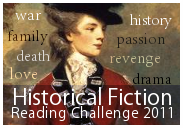




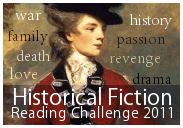


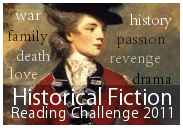

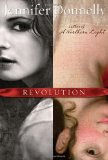

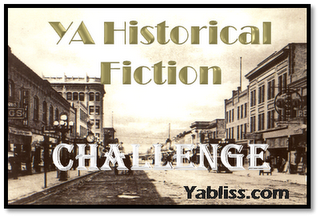
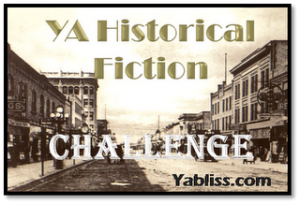 I love historical fiction, and I know some great YA historical fiction has been written since I was actively seeking out new YA some seven years ago or so. I am going to participate in the YA Historical Fiction Challenge hosted by YA Bliss.
I love historical fiction, and I know some great YA historical fiction has been written since I was actively seeking out new YA some seven years ago or so. I am going to participate in the YA Historical Fiction Challenge hosted by YA Bliss.